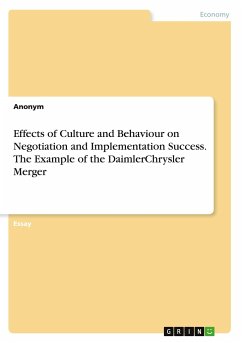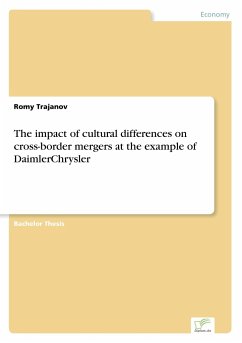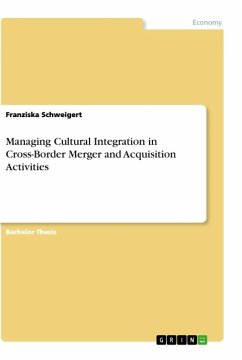Seminar paper from the year 2007 in the subject Business economics - Business Management, Corporate Governance, grade: 2,0, Nürtingen University (International Management, Intercultural Communication), language: English, abstract: In terms of globalization, enterprises have to be aware of their own identity, values andthoughts and develop a grasp for interaction with foreign cultures. So it's not only some kindof business behavior necessary, it is also important to know something about the values,morals and attitudes for a better interaction. Even more important is a survey, if you plan amerger or an acquisition with a foreign company. Researches proof, that 50-70 % of allmergers don't succeed. This essay deals with the difficulty of consolidating two differentcorporate cultures to one common culture. In order to visualize this issue, DaimlerChrysler istaken as an example. Culture is an "everyday thing", it is present in every situation. It is a guideline for livingtogether in large groups, giving rules to act and behave. In most instances these facts are notwritten down but unexpressed rules. There are many definitions in literature. The mostwidespread definition is likely"Culture refers to the cumulative deposit of knowledge, experience, beliefs, values, attitudes,meanings, hierarchies, religion, notions of time, roles, spatial relations, concepts of theuniverse, and material objects and possessions acquired by a group of people in the course ofgenerations through individual and group striving".Already the Egyptians and Romans created their own distinct hierarchies, laws, knowledgebases and values and tried to preserve it over several hundred years. Culture is needed to organize and administrate a group of people or whole population. Nowadays this lead tosophisticated cultures in every country of the world. These cultures are non-static grownindividual reflections of society that are always adapting to their environment.








